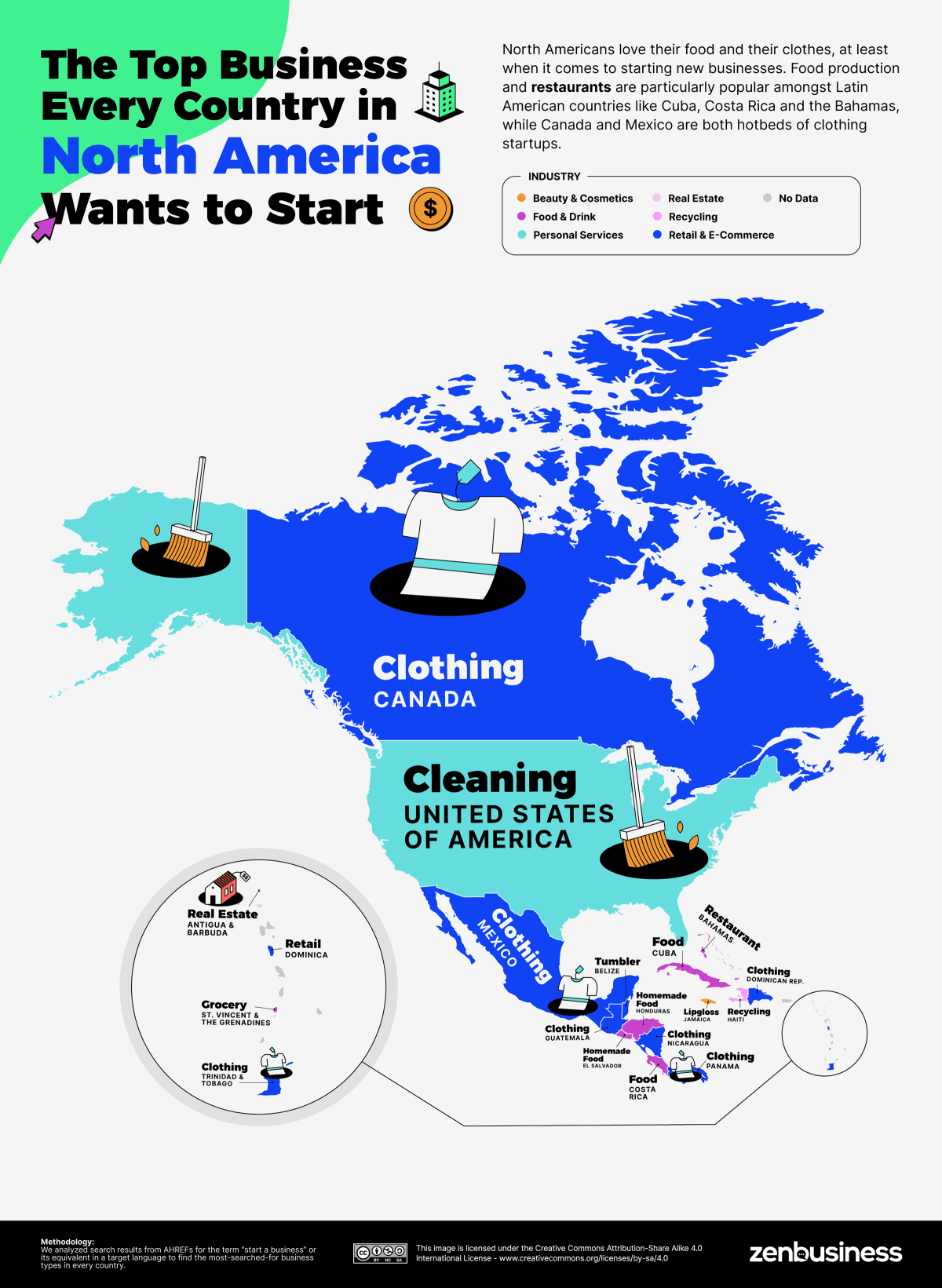A Comprehensive Guide To The Country's Top Business Locations

Table of Contents
Economic Powerhouses: Major Cities and Their Business Advantages
Major metropolitan areas often serve as economic powerhouses, offering significant advantages for businesses. These cities typically boast a robust infrastructure, a highly skilled workforce, and ample access to capital. Let's examine some key benefits:
-
High concentration of skilled labor: Major cities attract professionals from diverse industries. For instance, City A, renowned for its thriving tech sector, offers a large pool of software engineers, data scientists, and cybersecurity experts. City B, a global finance hub, is home to numerous financial analysts, investment bankers, and accountants. City C, a manufacturing powerhouse, boasts a skilled workforce in engineering, production, and logistics.
-
Robust infrastructure: These locations usually have well-developed transportation networks (airports, highways, public transit), reliable communication infrastructure (high-speed internet, advanced telecommunications), and access to essential utilities. This ensures seamless business operations and efficient logistics.
-
Access to venture capital and investment opportunities: Major cities are often magnets for venture capitalists and angel investors, providing ample opportunities for startups and established businesses seeking funding. This access to capital fuels innovation and growth.
-
Strong local government support for businesses: Many major cities actively promote business development through various initiatives, such as tax incentives, streamlined permitting processes, and support for entrepreneurship.
Emerging Markets: Up-and-Coming Business Hubs
While established cities offer many advantages, several emerging markets are rapidly transforming into vibrant business hubs. These locations often present unique opportunities for businesses seeking lower operating costs and untapped market potential.
-
Lower operating costs: Compared to major cities, emerging markets like City D and City E often offer significantly lower costs for real estate, labor, and utilities. This can translate into substantial savings for businesses.
-
Growing talent pool: These areas are developing specialized skills in specific industries. City D, for example, is emerging as a center for renewable energy, attracting engineers and technicians specializing in solar, wind, and other green technologies. City E is becoming a logistics hub, developing a skilled workforce in supply chain management and transportation.
-
Government incentives and tax breaks: Governments often offer attractive incentives, including tax breaks and subsidies, to attract businesses to emerging markets, stimulating economic growth in these regions.
-
Opportunities for market expansion: Businesses locating in emerging markets gain a first-mover advantage, allowing them to capture new customer bases and establish market dominance before competitors enter the area.
Industry-Specific Clusters: Finding Your Niche
Certain areas specialize in particular industries, creating vibrant ecosystems that benefit businesses within those sectors. These clusters offer significant advantages due to the concentration of resources and talent.
-
Access to specialized suppliers and contractors: Clustering allows for easy access to specialized suppliers and contractors, reducing lead times and improving efficiency. For example, a tech company located in a Silicon Valley-esque area benefits from proximity to numerous hardware and software providers.
-
Networking opportunities: Industry clusters foster collaboration and networking opportunities, allowing businesses to connect with potential partners, investors, and customers. This is particularly important in sectors like biotechnology, where collaboration is vital for innovation.
-
Concentrated talent pool: Businesses within industry clusters benefit from access to a highly specialized workforce with the skills needed for success. An agricultural hub, for example, would provide access to agricultural engineers, food scientists, and agricultural technicians.
-
Government initiatives: Governments often support specific industries through targeted initiatives, such as grants, research funding, and regulatory frameworks.
Factors to Consider When Choosing a Location
Beyond the location itself, several crucial factors need to be carefully evaluated when selecting the ideal spot for your business. These include:
-
Proximity to target markets: Consider the location's accessibility to your target customers. This is crucial for businesses reliant on physical distribution or direct customer interaction.
-
Accessibility for employees: Ensure that the location is easily accessible for employees, considering factors like commuting times, public transportation, and parking.
-
Cost of real estate and office space: Real estate costs can significantly impact your budget. Compare costs across different locations to find the most financially viable option.
-
Quality of life factors: Consider factors such as schools, healthcare, recreational amenities, and overall livability to attract and retain employees.
-
Regulatory environment and local laws: Thoroughly understand the local regulations and laws impacting your business, including zoning, permits, and taxes.
Conclusion
Selecting the optimal location from among the country's top business locations requires a strategic approach. By carefully considering the economic strength of major cities, exploring the potential of emerging markets, and identifying industry-specific clusters, you can lay a solid foundation for your business's success. This guide has provided a framework for evaluating key factors, from infrastructure and talent pools to cost of living and market access. Remember to thoroughly research potential locations and consider your specific business needs before making a decision. Start your search today for the perfect location amongst the country's top business locations to propel your company to new heights!

Featured Posts
-
 Us Stock Market Rally Driven By Tech Giants Tesla In The Lead
Apr 28, 2025
Us Stock Market Rally Driven By Tech Giants Tesla In The Lead
Apr 28, 2025 -
 Post Oval Office Clash Trump And Zelensky Meet At Popes Funeral
Apr 28, 2025
Post Oval Office Clash Trump And Zelensky Meet At Popes Funeral
Apr 28, 2025 -
 Extreme V Mware Price Increase At And Ts Concerns Over Broadcoms Deal
Apr 28, 2025
Extreme V Mware Price Increase At And Ts Concerns Over Broadcoms Deal
Apr 28, 2025 -
 The Us Economy Under Pressure Examining The Impact Of The Canadian Travel Boycott
Apr 28, 2025
The Us Economy Under Pressure Examining The Impact Of The Canadian Travel Boycott
Apr 28, 2025 -
 Open Ai Simplifies Voice Assistant Development 2024 Developer Event Highlights
Apr 28, 2025
Open Ai Simplifies Voice Assistant Development 2024 Developer Event Highlights
Apr 28, 2025
Latest Posts
-
 Espns Moving Tribute To Departing Anchor Cassidy Hubbarth
Apr 28, 2025
Espns Moving Tribute To Departing Anchor Cassidy Hubbarth
Apr 28, 2025 -
 Cassidy Hubbarths Final Espn Broadcast A Touching Tribute
Apr 28, 2025
Cassidy Hubbarths Final Espn Broadcast A Touching Tribute
Apr 28, 2025 -
 Emotional Goodbye Espn Bids Farewell To Cassidy Hubbarth
Apr 28, 2025
Emotional Goodbye Espn Bids Farewell To Cassidy Hubbarth
Apr 28, 2025 -
 Espn Pays Tribute To Cassidy Hubbarth On Her Last Show
Apr 28, 2025
Espn Pays Tribute To Cassidy Hubbarth On Her Last Show
Apr 28, 2025 -
 Exploring Monstrous Beauty Feminist Revisions Of Chinoiserie At The Metropolitan Museum
Apr 28, 2025
Exploring Monstrous Beauty Feminist Revisions Of Chinoiserie At The Metropolitan Museum
Apr 28, 2025
